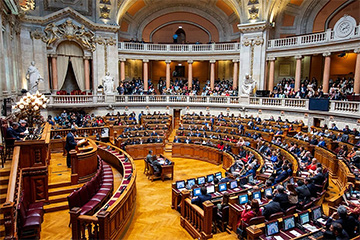
Portugal’s parliament has approved a new Foreigners Law that tightens entry, residence, and family reunification rules for immigrants. The law passed on September 30 with votes from the centre-right PSD–CDS–PP coalition, the right-wing Chega party, and the regional JPP. It was opposed by the Socialist Party (PS), the Left Bloc (BE), the Communist Party (PCP), and the environmental party PAN.
The bill now awaits the President’s signature before becoming law.
Stricter Family Reunification Rules
The law introduces tougher conditions for family reunification. Foreign residents must prove they have lived with their partners for at least one year before entering Portugal. Couples raising a disabled child are exempt from the waiting period and may reunite immediately.
Marriages used for reunification must be legally valid and consensual. The law bans recognition of polygamous marriages or unions involving minors. Applicants must also show they have suitable housing and enough income to support family members without relying on social benefits.
Rising Immigration and Political Tensions
Portugal’s foreign population has grown rapidly in recent years. By early 2025, more than 1.5 million foreign residents were registered — roughly 15 percent of the country’s population. This growth has fuelled political debate over integration, social support, and bureaucracy.
Chega, which pushed for even stricter controls, proposed a five-year waiting period before immigrants could access social benefits. That measure was not included, though the government plans to introduce separate legislation on the issue.
Critics say the new law could worsen backlogs for thousands of immigrants waiting on documents from AIMA, the migration and asylum agency. They warn that additional requirements may delay legal status for families already in Portugal.
A Softer Version of Earlier Drafts
Observers describe the final text as a toned-down version of earlier proposals. Lawmakers reportedly adjusted the language to address constitutional and presidential concerns while still signalling a tougher stance on immigration management.
Broader Migration Context
The article also notes a small rise in Portuguese emigrants returning home. About 2,800 citizens have moved back, many encouraged by government incentives aimed at reversing long-term emigration trends.


